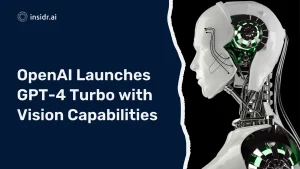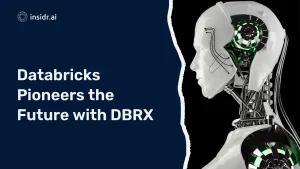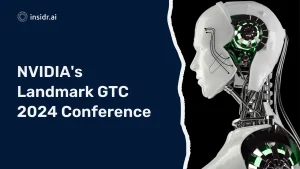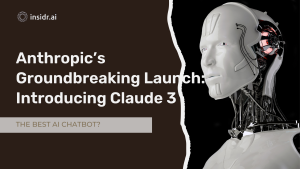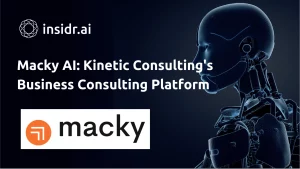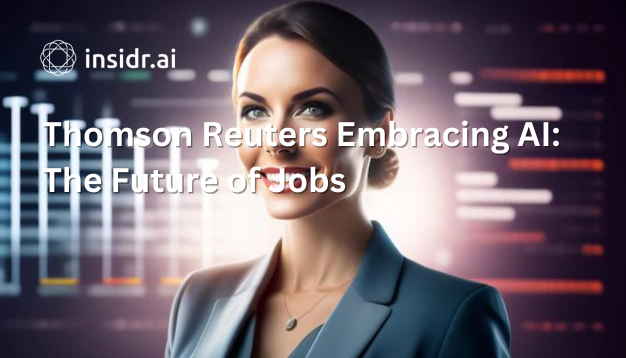
In recent news, Thomson Reuters, the renowned information powerhouse, has taken a giant leap towards embracing artificial intelligence (AI) in its operations.
This move is not just significant for the company but also reflects the ever-evolving landscape of the job market as AI continues to revolutionize industries worldwide.
A Glimpse into Thomson Reuters' AI Integration
Thomson Reuters has been actively integrating AI technology into various aspects of its business, and the results have been promising.
By leveraging AI algorithms, the company has improved the efficiency of its operations, enhanced data analysis capabilities, and introduced innovative solutions to its clients.
AI-Powered Data Analysis
With the integration of AI, Thomson Reuters can now process vast amounts of data at unprecedented speeds.
This enhanced data analysis capability allows the company to provide more accurate insights to its customers promptly.
The ability to quickly analyze market trends, financial data, and legal information ensures that Thomson Reuters remains at the forefront of providing reliable information to its users.
Automating Repetitive Tasks
AI has empowered Thomson Reuters to automate repetitive tasks, enabling its workforce to focus on more complex and strategic endeavors.
This shift has not only increased productivity but has also improved employee satisfaction, as they can now concentrate on creative problem-solving and critical decision-making tasks.
AI-Driven Solutions for Clients
Thomson Reuters has also developed AI-driven solutions that cater to its clients’ specific needs. These cutting-edge solutions range from predictive analytics to personalized content recommendations.
By harnessing the power of AI, the company delivers tailor-made services, thereby enhancing customer experiences and loyalty.
The Impact on Job Roles at Thomson Reuters
As AI technology becomes more ingrained in Thomson Reuters’ operations, there are evident changes in the job roles within the company.
The focus has shifted towards nurturing a workforce that can complement and work alongside AI systems effectively.
Upskilling and Reskilling Employees
To adapt to the new AI-driven landscape, Thomson Reuters has prioritized upskilling and reskilling its employees.
By providing comprehensive training programs, the company ensures that its workforce remains proficient in utilizing AI tools and technology.
This approach not only future-proofs job roles but also fosters an environment of continuous learning and growth.
Redefining Job Descriptions
AI integration has led to the redefinition of job descriptions at Thomson Reuters. Traditional roles have evolved, incorporating AI-related responsibilities.
Employees now collaborate with AI systems, utilizing them as valuable tools to enhance their work and overall performance.
Emphasizing Human-AI Synergy
Rather than replacing human workers, AI at Thomson Reuters complements and enhances their abilities. By focusing on the synergy between humans and AI, the company maximizes productivity, innovation, and efficiency.
Human creativity, critical thinking, and emotional intelligence are qualities that remain invaluable and irreplaceable, even in an AI-driven world.
The Future of Jobs in an AI-Centric World
The integration of AI at Thomson Reuters offers valuable insights into the future of jobs in an AI-centric world.
While AI will undoubtedly play a pivotal role in reshaping industries, it will coexist with human expertise and creativity, leading to new opportunities and job roles.
Emergence of New Job Roles
As AI technology advances, so will the emergence of new job roles that cater to AI development, implementation, and management.
These roles will demand specialized skills, providing professionals with exciting career prospects in a rapidly evolving technological landscape.
AI Ethical Standards and Governance
With the increased reliance on AI, there arises a pressing need for defining ethical standards and governance surrounding AI usage.
Job roles focused on AI ethics, compliance, and regulation will become paramount to ensure responsible and accountable AI implementation.
Enhanced Global Collaboration
The rise of AI presents an opportunity for enhanced global collaboration.
Job roles that facilitate cross-border partnerships, knowledge exchange, and technological cooperation will be in demand as companies seek to harness AI’s full potential on a global scale.
Conclusion
Thomson Reuters’ embrace of AI technology signifies a paradigm shift in the business world, where AI complements human capabilities rather than replacing them.
Through AI-powered data analysis, automation of repetitive tasks, and innovative solutions, Thomson Reuters demonstrates the transformative power of AI in driving business success.
As the future unfolds, job roles will adapt and evolve to accommodate AI integration, leading to a new era of opportunities and possibilities.
The coexistence of AI and human expertise will redefine industries, propel global collaboration, and pave the way for an exciting future where technology and human ingenuity go hand in hand.
Thomson Reuters’ bold steps into the world of AI exemplify how embracing innovation can shape a brighter tomorrow for businesses and employees alike.
Discover More AI Tools
Every week, we introduce new AI tools and discuss news about artificial intelligence.
To discover new AI tools and stay up to date with newest tools available, click the button.
To subscribe to the newsletter and receive updates on AI, as well as a full list of 200+ AI tools, click here.



